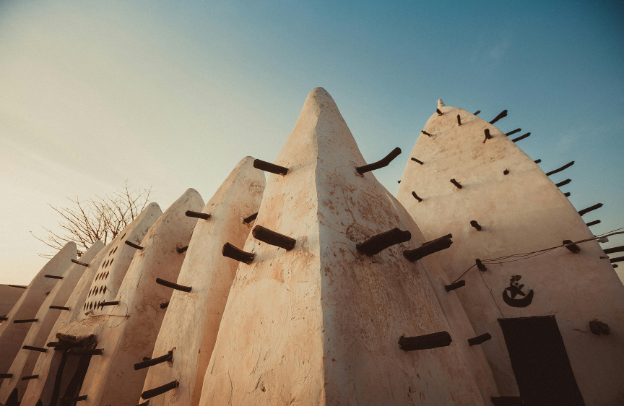Exploring Africa’s Historical Sites: Tourism as a Pathway to Ancestral Knowledge

Africa’s historical legacy spans millennia, yet for centuries, much of its story has been marginalized or misrepresented by colonial narratives, the transatlantic slave trade, and global displacement. Today, however, a powerful movement is underway members of the African diaspora are increasingly seeking to reclaim their connection to the continent. In this resurgence, cultural and heritage travel is proving to be more than travel; it is a dynamic educational journey into identity, history, and belonging.
Learn How to Leverage Your Story through our Story To Asset Framework.
From the slave forts along West Africa’s coast to the pyramids of North Africa and the ancient libraries of Mali, historical sites across the continent are becoming living classrooms. These places offer diasporans tangible links to their ancestral heritage—spaces where they can learn, reflect, and engage in meaningful dialogue with the past while contributing to a shared future.
Historical Landmarks as Educational Gateways
Africa is home to a wealth of UNESCO-recognized and historically significant sites that illuminate the continent’s contributions to global civilization.
The Great Pyramids of Giza in Egypt speak to advanced African engineering and scientific thought, while the ruins of Great Zimbabwe and the scholarly centers of Timbuktu showcase a legacy of political sophistication, architecture, and intellectual achievement.
For diasporans, especially those whose ancestry was disrupted by slavery, these sites represent more than history. They offer the opportunity to reconstruct lost narratives and reconnect with African cultural foundations. Visiting these landmarks deepens one’s understanding of pre-colonial African civilizations, challenging outdated stereotypes and enriching personal and collective identity.
You might also like Shaping a Collaborative Vision for Future Generations through the Role of Group Tourism
A Journey of Reconnection, Reflection, and Renewal
Think, for example, of the historic castles and forts that line Ghana’s coast, once central nodes in the transatlantic slave trade, and today, solemn memorials that invite deep reflection.
As documented by UNESCO, these fortified trading posts constructed between 1482 and 1786 by European powers such as Portugal, Britain, the Netherlands, and others played critical roles in the gold trade and, later, the trafficking of millions of African lives. From Cape Coast to Elmina, these sites now stand not only as reminders of human suffering but as places of remembrance, resilience, and reconnection.
Educational tours, often led by local historians, provide essential context, unpacking the political, economic, and deeply human dimensions of the slave trade. Storytelling sessions and traditional ceremonies offer diasporans a spiritual bridge to their ancestors, transforming visits into deeply personal experiences.
That is at the heart of The Diaspora Tourism Experience (DTE) as more than just a travel initiative but a movement to reconnect the African diaspora with the untold chapters of their ancestral narrative.
Imagine standing at sites like Cape Coast and Elmina, places where history is not just seen but felt.
These locations offer a deeply multi-sensory experience for members of the African diaspora: walking the same shadowed corridors where captives once passed, hearing the powerful oral histories shared by local griots, and taking part in ancestral rituals that stir something deep within.
These are not ordinary tours; they are moments of profound awakening, where the past becomes personal and the journey becomes transformative.
Research consistently shows that such immersive encounters often lead to personal transformation. Many participants report a clarified sense of identity, a deeper cultural empathy, and a renewed commitment to heritage and community.
Through the Diaspora Tourism Experience, we offer more than a return to the continent; we offer a return to self. This is history reclaimed, spirit awakened, and legacy honored.
Bridging Continents Through Cultural Exchange
Cultural heritage travel is not just about looking back; it also builds new bridges between African nations and diaspora communities. By engaging with local educators, artisans, elders, and entrepreneurs, diasporans contribute to a living exchange of knowledge and skills.
This interaction fosters mutual respect and helps dismantle long-standing misconceptions on both sides.
See also Strengthening Diaspora-Local Relations: How Group Tours Encourage Cultural Exchange
Initiatives such as Senegal’s African Renaissance Monument and Ghana’s Beyond the Return campaign encourage diaspora visitors not just to observe, but to engage through investment, education, and co-creation of cultural content.
In turn, African communities benefit from these collaborations in ways that extend beyond economics, including cultural revitalization and youth empowerment.
Economic and Academic Value of Heritage Tourism
Tourism to historical sites significantly contributes to local economies, but its impact is also academic and cultural.
Governments and NGOs are increasingly supporting programs that tie travel to education, such as language immersion, history seminars, and genealogy research. Diasporans can study Swahili in Kenya, learn about Ifá traditions in Nigeria, or explore ancient Ethiopian Christianity in Lalibela.
Educational partnerships are also emerging between African institutions and diaspora-led organizations. For example, heritage research projects and DNA ancestry tracing programs are being integrated with cultural tours to offer visitors both scientific and narrative-based connections to their lineage.
Safeguarding Heritage for Future Generations
While the potential of heritage travel is immense, it must be approached ethically. Over-commercialization, cultural appropriation, and neglect of sacred traditions can undermine the very histories these sites are meant to preserve.
That’s why community-led travel models are so important; they ensure local voices guide interpretation, preservation, and benefit-sharing.
Many African nations are actively implementing policies to preserve their cultural heritage while promoting responsible travel. For instance, Ghana, Sierra Leone, and Rwanda have introduced diaspora-friendly initiatives including land access, dual citizenship pathways, and heritage visas.
See also The Role of Group Tourism in Preserving and Promoting African Diaspora Culture
These measures signal a long-term vision: travel not as a fleeting industry, but as a strategic platform for historical justice, cultural continuity, and global kinship.
Conclusion: Tourism as a Tool for Learning and Legacy
For members of the African diaspora, heritage travel is more than a trip; it is an educational odyssey, a way to bridge continents, centuries, and narratives. It transforms sites of memory into sites of meaning, turning ruins, relics, and oral traditions into lessons in resilience, innovation, and unity.
As more people journey to the continent in search of answers and connection, Africa’s historical sites are taking on new life, not just as tourist attractions, but as centers for knowledge exchange, reconciliation, and cultural renewal.
Through travel, a new chapter in the African story is being written, one grounded in truth, guided by education and powered by shared hope for a more unified future.
Learn How to Leverage Your Story through our Story To Asset Framework.





